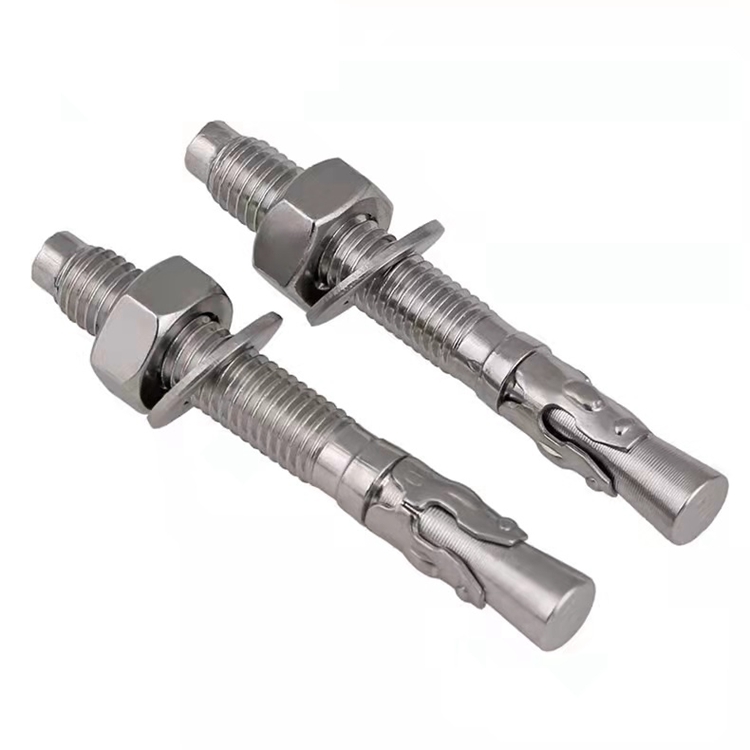oem engine flywheel bolts to the
Sep . 23, 2024 07:00 Back to list
oem engine flywheel bolts to the
Understanding OEM Engine Flywheel Bolts
When it comes to automotive performance and reliability, every single component plays a crucial role. One often overlooked yet essential part of the engine assembly is the flywheel, and even more specifically, the OEM (Original Equipment Manufacturer) engine flywheel bolts. In this article, we will explore what OEM engine flywheel bolts are, their importance, and the implications of choosing the right components for your vehicle.
What are OEM Engine Flywheel Bolts?
OEM engine flywheel bolts are specifically designed bolts used to secure the flywheel to the engine's crankshaft. These bolts are engineered to meet the exact specifications of the vehicle's manufacturer, ensuring compatibility and performance. Typically made from high-strength materials, OEM flywheel bolts exhibit characteristics such as resistance to corrosion, fatigue, and wear.
Unlike aftermarket alternatives, which may vary in quality and specifications, OEM parts are built to the same standards and tolerances as the original components utilized when the vehicle was manufactured. This alignment with factory specifications is critical for ensuring the longevity and reliability of the engine.
The Importance of Flywheel Bolts
The flywheel serves several key functions in an engine; it provides inertia to smooth out the power delivery and is vital for engaging the starter motor to crank the engine. If flywheel bolts fail or become loose, it can lead to catastrophic engine failure. The bolt's primary responsibility is to maintain a secure connection between the flywheel and the crankshaft, allowing the engine to work efficiently.
oem engine flywheel bolts to the

Using OEM engine flywheel bolts not only ensures a proper fit but also helps maintain the engine's balance and reduces the risk of vibrations
. This is particularly important for high-performance vehicles, where even minor imbalances can lead to significant performance issues and potential engine damage.Risks of Using Non-OEM Components
Opting for non-OEM or generic flywheel bolts can initially seem like a cost-saving measure, but this can often have serious repercussions. Non-OEM bolts may not possess the same strength or integrity as OEM parts, leading to potential failures. Such failures can cause the flywheel to detach from the crankshaft, resulting in significant engine damage and expensive repairs.
Moreover, incorrect specifications may lead to improper installation, which can further exacerbate the risks of engine malfunction or failure. Therefore, it's crucial to prioritize safety and reliability by choosing OEM engine flywheel bolts.
Maintenance and Replacement
When it comes to maintenance, regularly inspecting engine components, including flywheel bolts, is imperative, especially after high-mileage intervals or if the engine has been subjected to heavy loads. If there is any sign of wear, rust, or damage, it is advisable to replace the bolts with new OEM components.
In conclusion, OEM engine flywheel bolts play an essential role in securing one of the most critical components of your vehicle's engine. By opting for OEM parts, you ensure reliability, performance, and longevity for your engine. The small investment in quality OEM bolts can save you from costly repairs and keep your vehicle running smoothly for years to come. Always remember, when it comes to engine components, compromise is never an option.
Latest news
-
High-Quality Panel Stud Bolt Reliable Panel Stud Bolt Factory & Suppliers
NewsJul.08,2025
-
High-Precision Fine Thread Locknuts Manufacturer & Supplier Custom Solutions
NewsJul.08,2025
-
PH Imperial Stud Bolt – High Strength Fasteners from Leading Supplier & Factory
NewsJul.07,2025
-
High-Quality Allen Wrench Bolts Leading Factory, Company & Suppliers
NewsJul.07,2025
-
Wholesale Ball Stud Bolt - High Quality Supplier & Factory Price Reliable Wholesale Ball Stud Bolt Company
NewsJul.06,2025
-
High-Strength Alloy Bolts Manufacturer & Supplier Quality Alloy Fasteners Factory
NewsJul.06,2025
